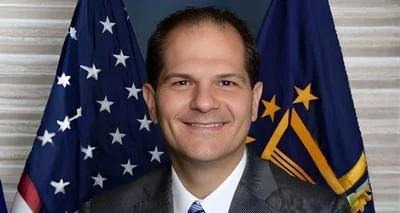Recurring absenteeism, possible deflections regarding accountability and other inconsistencies are troubling the Edgar County Watchdogs (ECW) after a perusal of training standards for state law enforcement personnel, the group said on its website recently.
The ECW noted that soon after it reported that important Illinois Law Enforcement Training and Standards Board (ILETSB) personnel were notably absent from meetings, the Chicago Tribune published an editorial quoting former Chicago Police Department Superintendent Garry McCarthy.
Having been fired by Chicago Mayor Rahm Emanuel during the high-profile Laquan McDonald case in 2015, McCarthy offered his thoughts on what he perceived to be flaws in the system.
“[If] you're going to investigate policies and practices of the Chicago Police Department, you should start with the individual who implemented them, and that's me,” he told the Tribune.
McCarthy said his groundwork appeared lacking in the final McDonald case report, suggested that the department summarized case events in a cookie cutter-style format to present material in an acceptable fashion, and implied that the presentation might have been skewed by intention.
“It's almost a fill-in-the-blanks type of investigation, where they come knowing what they're going to say,” McCarthy told the paper. “They go out and get testimonials from individuals to reinforce what it is that they want to say.”
McCarthy specifically cited the department’s failure to abide by his improved training standards, observing that he worked to implement policy changes relevant to events such as the McDonald case. He clarified that his approach concerned not only the act of shooting a gun but also tactical decisions and acknowledging that supplementary training is always a good idea.
“But if you say that the training is inadequate, then you’ve got to say that the standards of the Illinois State Training Commission are inadequate,” he told the Tribune regarding Chicago Police Department (CPD) training.
It was this statement in particular that piqued the ECW’s interest. The group said that McCarthy was in fact one of the key players conspicuously absent from meetings over the past three years, and while it agreed that the former superintendent pinpointed the correct agency in terms of training inadequacies, it also surmised that he ducked responsibility when he failed to include himself for responsibility in any snafus.
“Why point to an agency and blame potential training deficiencies on them when you are the one responsible for such training controls?” the ECW said on its website. “Anyone have a mirror?”
The watchdog group stressed that while it claimed no intimate knowledge of CPD training, it did take issue with “carve-out” legislation in conjunction with the Chicago police chief, Cook County sheriff and their respective chief deputies. Noting that continuity across the board is crucial for safe uniform performance throughout a regional jurisdiction, the ECW discovered what it perceived to be unsettling inconsistencies in the language of the law as it pertains to law enforcement training.
Quoting from Illinois Statute 50 ILCS 705/10.7 regarding mandatory training, the ECW cited the law as reading in part: “Each police chief and deputy police chief shall obtain at least 20 hours of training each year … This Section does not apply to the City of Chicago or the Sheriff’s Police Department in Cook County.”
Why Chicago and Cook County would not be required to comply forms the crux of ECW’s objection. Further, its principals averred that the statute includes no reference to either the chief of police or his chief deputy, raising concerns about preparedness and — in the bigger picture — questionable exceptions to the rule.
“Uniformity in training is instrumental … Having them all on the same page can be critical,” the ECW said on its website.
The group added that it was unable to locate any alternative training material for Cook County personnel in the jurisdiction’s employment manuals.
Reiterating its take on the ILETSB based on previous ongoing scrutiny, the ECW reminded the public that its goal in examining the board’s procedures is not intended to be an act of harassment but instead “a wake-up call.”
“Can anyone say that such an exemption makes any sense?” the group asked on its website.






 Alerts Sign-up
Alerts Sign-up